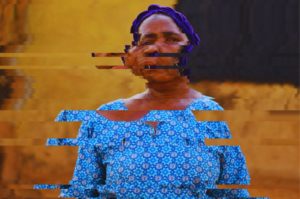
The finality of birth is death. The most difficult and trying times are when everyone else is gone. When the pain rises and falls without notice, without measure, but always with violence. The grief hits and hurts like a living flame burning from that point where people say your highest being resides. You are alive to the fact that it is present, although sometimes it lies dormant and watches you go about your life. Sometimes, you solicit it, calling upon its name that wounds your tongue, but still, you call upon it out of fear of forgetting that and who it used to be. You want the tears to fall, your chest to heave, and your head to ache so that you remember what once was through pain. When you least expect it, it pounces on you just when you think that you can now manage it better.
Just better, never gone because that is impossible, and then it rises from the ashes, flaming your whole life. Its mandate is to keep you intact, alive to the fact that human beings are mere mortals. It retains its power by relinquishing your false sense of control that you thought you had and that you had it all together. Now you know that you do not.
Grief has become who you are because everything reminds you of him. The suffering is alive in you, and he is active in everything: dainty memories, the empty sofa that he loved, the unopened jars of coffee, his clothes that are still neatly packed in the closet, the space on the right side of your bed, the lonely rides in the car and the silence. The silence that envelopes the house that you once shared. The situation is new, and sometimes you forget it is only you now. The only adult available. You did not want to be here today, but you are for him and your child. You are on time. You always are, except for that stint when you arrived home a few minutes late and found him lifeless and still on his favourite sofa. Heart attack. His and yours. His was sudden, and yours is set to last a lifetime, to last forever, which you believed you would spend with him.
Your fingers slowly straighten the death certificate in your file of documents. It represents many things for you: a signal of his death and the birth certificate of your pain. His relatives will not believe it was sudden. They say you poisoned him for his wealth. They also declare that they will not rest until a death certificate bearing your name is issued, but still, you are here with them today. There are inheritance issues to be discussed. You are reminded of your husband because his son sits across you on your sister-in-law’s lap. He is probably three or four years old. He looks like your husband and nine-year-old daughter that you drove to school earlier this morning. They are birds of a feather, sharing the same blood and wings that fly to unfettered highs. This is the second time you have seen the boy, Wandipa. The first time was at the funeral. After that, his name is scattered in your dreams because you realize he wanted a son, and the other woman bore him one.
The coarse vulgarity that his uncles spewed upon you still rings in your head like an eternal record. They cursed you because the family wanted a son as if that was under your control. They condemned you because, after Nomthandazo, there were no more children unknown to them. You had tied your tubes. They cursed you as if Nomthandazo was not enough. “What kind of a man has one child, a daughter for that matter, and feels like he has served the world. What kind? You have bewitched him, mthakathi. Witch,” they repeated over the years. You did not respond then, and even today, as you walked into the Master of the High Court’s chambers, you were silent as one of his uncles called you a witch again.
You have all been sitting still for over ten minutes, and finally, the Master arrives. The short and eloquent man calls for the surviving spouse, and your hand is raised at half-mast.
“Name, please?”
“Busi. Sibusisiwe Lukhe-Ncube.”
“Documents, please. Proof of marriage, ID, anything.”
There is fumbling. The documents are still neatly organized in the file, but your fingers need more clarity and restlessness. You comply and furnish the Master with the requested records—a copy of your national identity card and confirmation of your existence. You were eighteen when you finally involved the government in your issues, young, carefree, and happy to be an adult. If only you had known, there was more to it than the ability to drown a Zambezi beer without guilt. Your original marriage certificate is a testament to your union and love, the security symbol. It looks new, untouched, untainted, and safely kept.
Ten years after you got your identification card, you married Mlungisi Ncube in the courthouse, far from here. You didn’t want a fanfare, just you and him until the end. So, it was just you and him, two witnesses, and the Magistrate. There was contentment and happiness from that moment, even through the tough times. Both families said you did not understand the concept of marriage. If you still wanted to keep your last name, you were one and had to share one name. You kept yours and still adopted his. Still, you involved the government in your issues, married him, and double-barreled your last name. A year later, Nomthandazo was born, and there was joy. Finally, you had had a child. Nine years later, he is gone, with your elusive dream of forever and happily ever after. You sit still, thinking about how you are involving the government in the inheritance issue. It demands to meddle, so you let it be.
“Doris Ncube,” she says. You only know what is happening once someone nudges you. She complies, too, and hands the Master her identification card.
“Are you sure, sisi?” he inquires grimly.
“Yes,” she smiles.
“Hmm, 1993,” he says, scribbling the details down. She is ten years younger than you, and the shock slaps you hard. It’s the first time you have ever been punched in your life. Ever.
“This is the proof of the lobola. The signed lists and all,” she says, handing over a document. He takes it, scribbles again as if he has somewhere else to be, hands it over to her, and she returns to her seat at the back.
“She changed her name to his last name through a deed of change of name. Nothing serious!” someone says, not to you but for you to hear.
This is torture. Did he love someone else enough to send the cows to her father? She saunters sufficiently for you to measure her up while you pretend to adjust your black head wrap, matching your dress and shoes. The world must know you are mourning, so you are asked to wear black only during that period. Doris is also clad in black. She is heavily pregnant, ready to pop another Ncube, you assume. Your identification card means nothing to you anymore. It is like you no longer exist.
Wandipa and Doris have both ushered in a new normal in your life. A child he sired with a woman who would not show face. A woman carrying his child who has shown face. They are souvenirs, and they remind you of him. Their presence and mere existence are treacherous, forcing you to question everything you have ever known. Deceit and pain are written over everything. How could he? You know that only he can answer your questions. Your marriage certificate is now only just a paper, tainted and insecure. A double barrel of pain and grief fermenting. There is a charade, the very thing you did not want. He has handed it to you in a gift box through his death. He has been surprising you lately, a child at the funeral and a whole wife now. A new sort of grief runs through you. You shriek and laugh coldly but loud enough to pierce through the air. You mourn your existence and the unfulfilled promise of a happily ever after. Grief has a firm hold on you.
The Master says there is a problem, depending on how you look at it. Your marriage supersedes hers by law. An unregistered customary law union cannot be seen to unhinge the jaws of a civil law union. The surviving spouse is you, yet it doesn’t feel like you exist. There is an unraveling, and his relatives say that cannot be. They know how much he loved Doris, but that is what it is. It is also beyond your control, and you curse at how Mlungisi was selfish to get you all involved in this mess. You savour that thought. The Master adjourns, asking you all to put your house in order and apply for a new date for the meeting, and until then, he has no time for drama. Neither do you.
“There are three houses. That’s why we are here. Not this business about who Mlungisi was sleeping with or loved the most,” a disgruntled uncle shouts. Yes, there are houses to consider, and they only know three, but you think about the one that you and Mlungisi had built in your heart. The one set on the foundation of love and the bricks of companionship. Held together by respect and covered on its head by loyalty. A stable house that had weathered the storms and welcomed the sunshine. A place that protected you and your little family, giving you comfort and a strong sense of belonging. The one that has unashamedly come tumbling down, brick and mortar laying before you in bits and pieces. The foundation shakes in your chest and translates into tremors in your mind. The Master leaves, and you, like him, find your way out.
It is refreshing to finally breathe, to be outside in the car park where the birds are chirping, and the sun threatens to lash humanity with severe burns as if angry. You are, too. You need to talk to someone, and naturally, you dial your sister’s number, wondering what time it could be in Berkeley. You dial anyway, and it goes unanswered, as expected. You know she is asleep, but you had hoped she would pick up. The void cannot be filled. Perhaps it should not. The love will not go away. Maybe it cannot. You stand alone in silence, look in pain, and fume off grief. It is a smell that will never disappear, but you wear it anyway. You have no choice in birth, death, love, or rage. You will not awaken because it is not a dream. Now you want to forget him and everything before his death. You wonder when he strayed away and how it all happened because everything was perfect to you.
You do not want to be reminded of him anymore, and you do not want to see him in anything. Nomthandazo comes flashing into your mind. You think of her and what she must be going through, too. She will always be a permanent reminder of Mlungisi. Power and weakness are in your bones and strides at the same time. There is a deep knowledge that there is only so much that you can control. Death has taught you that, but there is also a longing to hold the reins. You are still determining whether you want to live or not. So, you decide to do what you can; you take a deep breath, and it dawns upon you that the real battle has only just begun.
Photo by Кристина Фатина on Unsplash










Kay Mabasa March 14, 2024 22:52
Soft poetic writing with intense emotions, beautiful story!